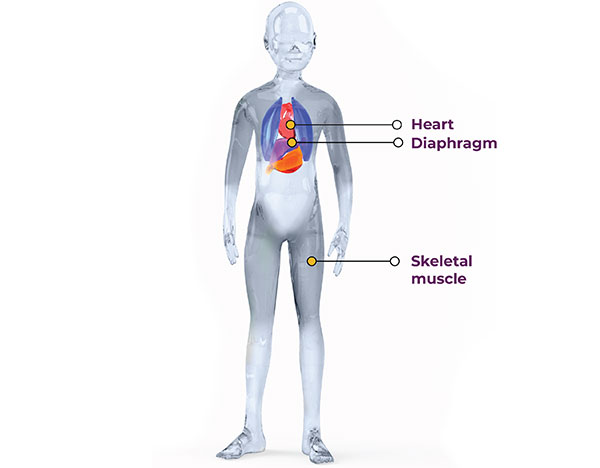
Duchenne muscular dystrophy, sometimes shortened to DMD or just Duchenne, is a rare genetic disease. It predominantly affects males, but, in rare cases, can also affect females. Duchenne causes the muscles in the body to become weak and damaged over time and is eventually fatal. The genetic change that causes Duchenne—a mutation in the DMD gene—happens before birth and can be inherited, or new mutations in the gene can occur spontaneously. Muscle weakness becomes increasingly noticeable between the ages of 3 and 5, and most patients use a wheelchair by the time they are 12. During adolescence, heart and breathing muscles weaken, leading to serious, life-threatening complications.
Duchenne affects approximately 1 in 3,500 to 5,000 males born worldwide.
Duchenne is caused by a change or mutation in the gene that encodes instructions for creating dystrophin, an essential protein for muscle strength. Dystrophin is a protein that plays a key structural role in muscle fiber function. In healthy muscle, dystrophin interacts with other proteins at the cell membrane to stabilize and protect the cell during regular activity involving muscle contraction and relaxation. Genetic testing can confirm the diagnosis and identify the disease-causing mutation in the dystrophin gene.
Individuals with Duchenne produce little or no dystrophin in their muscle.
Without dystrophin, normal activity causes excessive damage to muscle cells, and over time is replaced with fat and fibrotic tissue.
